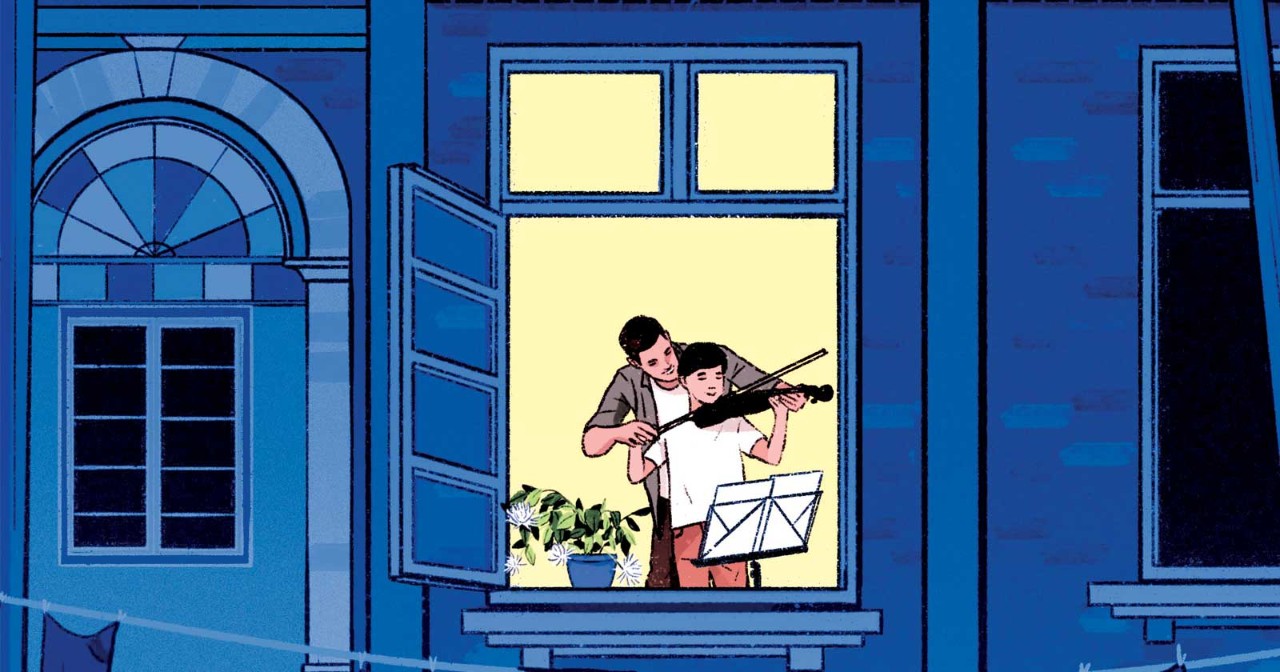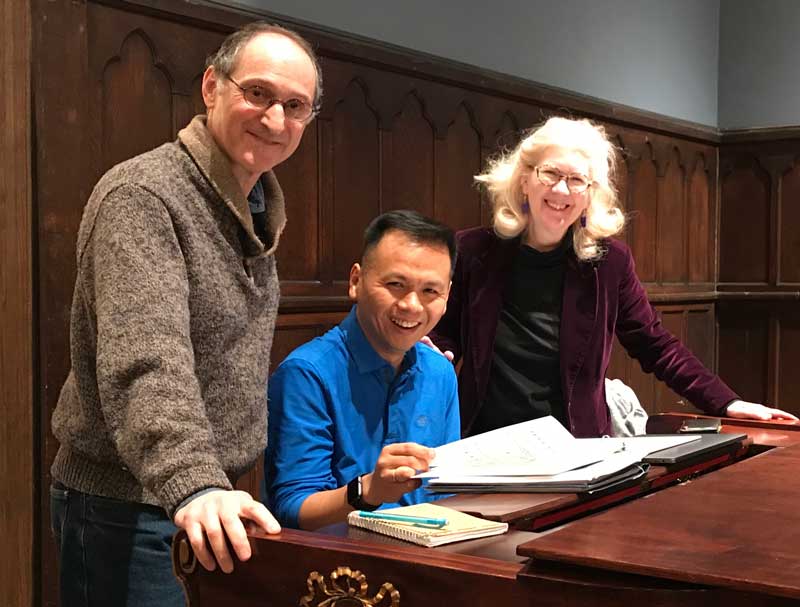


Shanghai Sonatas
A UD-born musical explores an obscure World War II story about the unifying, healing, “soul-saving” power of music.
March 13, 2024
It’s a little-known story of World War II history: the time 20,000 European Jews fled Nazi persecution and settled in Shanghai, China. With little to no possessions of their own, many refugees earned wages through the one intangible, imperishable relic that remained—their knowledge. In the 1930s and 40s, some Jewish refugee musicians began giving music lessons to Chinese children, an education that launched the country’s dedication to and excellence in classical music, which endures almost 100 years later.
UD music Prof. Xiang Gao is a third-generation Chinese musician who has dedicated his life and career to connecting people between the East and West through the unifying power of music. But even he had never heard of this remarkable history. It was only after a 2018 visit to the Shanghai Jewish Refugees Museum, located in the city’s former Ohel Moshe Synagogue, that the UD composer and concert presenter realized, “This story needs to be shared globally.”
Gao’s quest to do so marks his largest creative project to date—Shanghai Sonatas, a full- scale Broadway-style musical that explores the relationship between a Jewish refugee and his young pupil, and how this connection brought the two communities together.

“Music is not just light entertainment; it’s a soul-saving pursuit,” says Joyce Hill Stoner, a material culture professor trained in musical theater, who wrote the lyrics for the Shanghai Sonatas, alongside Gao, who composed the music, and book writer Alan Goodson, who developed the storyline. The team drew on their own differences to create the compelling story. “This is very personal to me as a Jew and someone who has known Holocaust survivors,” says Goodson, “But I would never go into a project like this without Chinese collaborators.”
A cosmopolitan city, Shanghai in the 1930s was home to expat communities from around the world, with a vibrant nightlife including theatres, opera and jazz clubs. Shanghai Sonatas reflects this melting pot with songs written in various musical styles, from American musical theatre to 1930s jazz and klezmer to Peking opera.
In true unifying power, the production has resonated with audiences of all ages, experiences and backgrounds, including the late Holocaust survivor and Shanghai refugee. Betty Grebenschikoff. Speaking with UD concert attendees, she recalled how her German friends pushed her, insulted her and threw mud at her. In China, under exceptionally difficult circumstances, Grebenschikoff found new community, and hope.
UD’s Master Players Concert Series first presented Shanghai Sonatas as a staged concert event during its 2019-2020 season. From that initial performance, the musical has been expanded, rewritten, workshopped and produced across the country.
After a well-received concert version in Los Angeles earlier this year, the team spent time finalizing their most recent draft, one that is ready for a fully staged musical production that could find life at a regional or non-profit theatre, or even a Broadway stage.
“This is a story of belonging,” says Gao. “The horrors of humanity stem from a lack of education and connection. That’s why artists have a strong and urgent mission to educate, to connect; to share important messages and strengthen our understanding of each other. That’s what we’re doing here.”
Audiences can learn about upcoming performances at https://shanghaisonatas.com/
Contact Us
Have a UDaily story idea?
Contact us at ocm@udel.edu
Members of the press
Contact us at 302-831-NEWS or visit the Media Relations website


